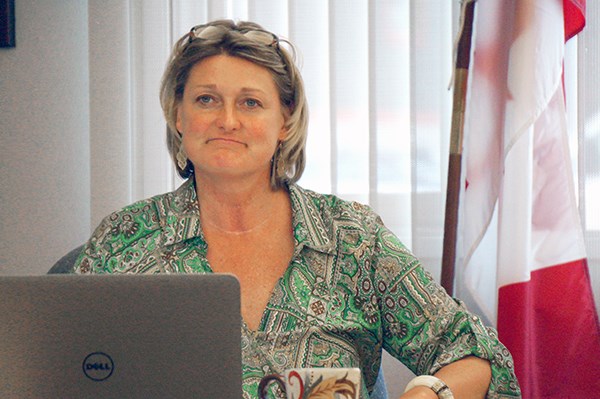A new survey shows many local teachers do not feel they have what they need to give students the fulsome education they deserve.
A survey by the Sea to Sky Teachers’ Association (SSTA) showed 84 per cent of teachers surveyed disagreed with the statement that they had adequate supports to meet the learning needs of all students in their class.
The survey was conducted as the Sea to Sky School Board of Education works on its budget for 2015/16.
“We have about 570 students…. One of the overriding concerns for a lot of us at school is access to technology that is reliably working on a daily basis,” Don Ross Secondary teacher Sherri Cargoe told the school board at its meeting May 13. She said Don Ross has two labs with about 25 to 30 computers, two laptop carts of 15 laptops each and six iPads.
“It is a challenge daily just to have the access,” she said, adding the Internet also crashes frequently.
Superintendent of schools Lisa McCullough said schools receive site-based funding.
“So what that means is we receive the provincial funding, and then the lion’s share of the provincial funding goes directly to schools. So they have their established budget, they can predict what they are getting and they can be establishing plans right now for next school year,” she said. “They make their own internal decisions with their planning team and they establish the needs of their students and the desires of the students… and what is left over is what the district gets to use.”
About 150 members of the SSTA completed the survey, more than half the teachers on contract in the district, according to Carl Walker, president of the SSTA.
The survey also found that 82 per cent of teachers surveyed did not feel the district’s spending priorities reflected the most pressing needs in their classroom or school.
Grade 5/6 late immersion teacher Beth Miller from Squamish Elementary said a French coordinator was needed to help organize teachers and resources for the new early French immersion program, which started this year.
“What many of us believe is that some of the rather large amounts of money that come into the district, to support French programs… we are hoping that you will spend that money on a French coordinator,” she told the board.
McCullough said there is a French coordinator who works one day a week.
According to Walker, the coordinator was not assigned until well into the school year and French Immersion duties were added to an existing coordinator position.
At the high school level, special education teacher and SSTA vice-president Steve Lloyd said a lack of special education services at Howe Sound is a pressing issue, particularly this semester.
“Students with the highest needs, need support often in basic functions, communications, very highly trained specialists are needed to instruct them on how to become better at things… it has been a long-standing reality in schools for a long, long time and so it is new that it isn’t being provided this semester.”
“It may be a response to a sudden funding crunch that happened, but it is necessary to restore it.”
Howe Sound Secondary principal Christine Perkins said she worked with a team at the school to distribute approximately $420,000 for special education services this year.
“We have spent all of that and beyond,” she said. Perkins said in recent years, the special education population at the school has decreased, which has meant fewer students in need and less funding.
“However, we always look after the students we have,” she said, adding that some students also do well when fully integrated into regular classes.
“Do we all wish there was more funding? Yes. But in the absence of more money, are we offering as much as we can to engage and excite learning for all our students including our special education students? Yes.”
The district’s budget for next year will be wrapped up and sent to the provincial ministry in about the middle of June, according to McCullough.
In response to a request for comment from the education minister, the ministry sent facts and figures including that total funding to school districts from the provincial government will be $5 billion next year. Over the same period, September student enrolment dropped by about 75,000 students, according to an email from a ministry spokesperson.
The new collective agreements with teachers and school support staff reached in the fall includes boosting the Learning Improvement Fund to districts by $421 million in total funding over three years, according to the spokesperson, who also noted that in the Sea to Sky School district, the six-year graduation rate for all students in rose to 81.7 per cent in 2013-14 from 72.7 per cent in 2009-10.



